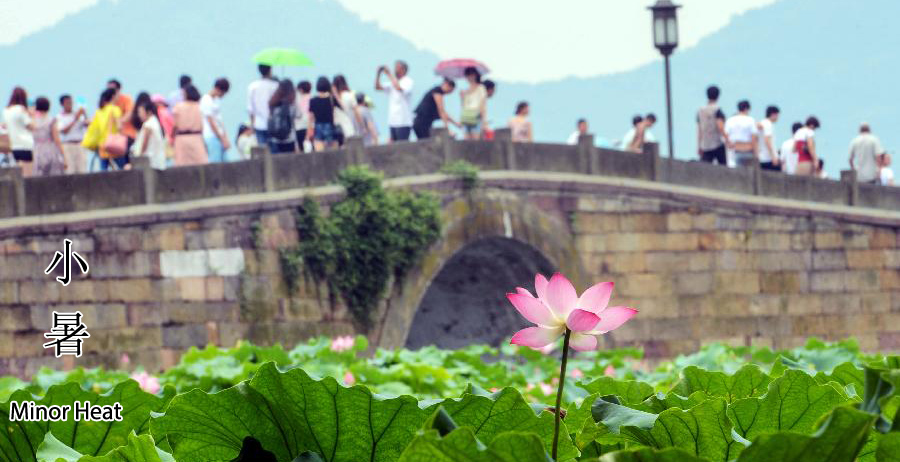The 24 solar terms: part four

In Xiao Shu, lotus is growing stronger, which shows the most beautiful view in summer.
When the sun reaches the celestial longitude of 105 degrees, it is the time for Xiao Shu. Shu stands for “hot,” and xiao means “little” or “lesser,” so Xiao Shu is usually hot, but not as hot as Da Shu, which means “Great Heat.” Xiao Shu often comes in the first half of July in the Chinese lunar calendar, when we enter the Fu days, or the dog days of summer, of which the middle Fu is the hottest.
The average temperature might be 26-27 centigrade degrees, with the highest temperature being above 40 degrees. The amount of precipitation will be more than 90 millimeters, making it the wettest term of the whole year. Storms, thunder and hailstones might happen during this time, though in some years there might be summer droughts.
After the hottest part of the summer begins, floods caused by storms are bad for the growth of vegetables, cotton and beans. There is a saying that goes, “If there are south winds in Xiao Shu, there will be droughts in Da Shu. But, if there is thunder in Xiao Shu, there will be heavy rain in Da Shu.”
Some 2,000 years ago during the Zhou Dynasty (1046-256BC), to dispel summer heat during Xiao Shu, Chinese people kept barrels of water in their homes. After the Tang Dynasty (618-907) and the Song Dynasty (960-1279), it became customary for the emperor to hold a cold dinner and gift ice to his ministers.
Nowadays, when the dog days come, people tend to lose their appetites and dumplings are consumed as a remedy.
In ancient times, our forefathers divided the Xiao Shu into three pentads—“the first one is the arrival of hot winds; the second one is the crickets’ settlement in the corner; the third one is the hawks’ fighting in the air.” Cool breezes cease to blow during the Xiao Shu.
In Xiao Shu, high temperatures promote the growth of lotus blossoms. From Xiao Shu to the Double-Ninth Festival, the lotus is in full bloom. The lotus looks simple but elegant. In “Moonlight Over the Lotus Pond,” modern essayist Zhu Ziqing (1898-1948) wrote about the night of Xiao Shu: “Moonlight pours out over the lotus leaves and flowers like running water. A mist lightly levitates in the pond.”
